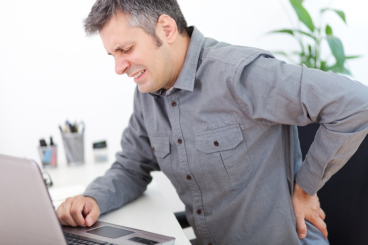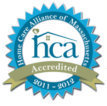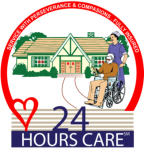2 Kinds of Pain That Are Common Among Seniors

We know we have reached our senior years when we can feel discomfort and pain more frequently in different parts of our body. It could start from a simple crack on our knees or a feeling of fatigue on our shoulders. Because the first stages of muscle pains are still bearable and subtle, we tend to dismiss it and endure the pain. However, untreated muscle pains could lead to more chronic and worse aches that we can ever imagine.
More often than not, most people would rather silently wait for muscle pains to subside rather than act on it right away. But if you ask the doctors and medical experts, they would advise every senior to seek medical help the moment they feel alarming muscle pains.
24 Hours Care, your trusted partner when it comes to in-home care in Newton, MA, strongly suggests that you should never ignore changes you can feel in your body. This applies to your muscle pains and bodily discomforts that you observe as you age. But if you cannot distinguish a normal pain from that of a serious one, here are two types of muscle and joint pains that you must be wary of.
- Joint pains
When you feel a swelling sensation in your joints, like fingers, knees, and hips, these could be precursors of arthritis. This is characterized by inflammation and stiffness in the joints. Because of aging, our joints tend to wear out. And when the elasticity in our joints wear out, they can rub against each other that eventually cause the pain we feel in our knees, fingers, and hips.
There are a number of seniors who are suffering from this type of joint pains. Although for some, arthritis may only strike once in a while but other seniors will have to endure a lasting pain overtime when their condition is not treated right away.
- Lower back pains
These muscle pains are often felt in our spine and near our hips. We might have heard how osteoporosis is rampant among seniors. As we age, our bones and muscles degenerate as well. Due to lack of calcium and the body’s inability to produce as much as it does before, our bones tend to shrink or their density gradually lowers.
Hence, the reason why we see our grandmother’s posture tending to lean forward or when their legs deform caused by a deformed bone. Often times, lower back pains can come in a simple discomfort in our hips or near their buttocks. We may mistakenly take it as fatigue or just one of those normal body aches they feel. But once we see that such pain does not subside even after a few days, we must have it checked by the doctor.
What are the other kinds of pain that you have heard of? Does your senior loved one also complain of such? If so, what do you usually do? Let us know how you handle pain concerns with your loved ones.
For queries about pain management and administration of pain relievers, you can consult our health care professionals for our home care services at 24 Hours Care. For details, you can check our website at www.24hourscare.com.

Contact Information
- Address: 24 Hours Care 73 Lexington St., Suite #LL5, Newton, MA 02466
-
Phone: 617-792-0500
617-559-9900
Fax: 617-213-5457Cell: 617-244-4676
- Email: office@24hourscare.com Web: www.24HoursCare.com www.24hourscare.org
Our goal is to keep our clients healthy
We treat various health conditions and we help clients cope with their challenges.
Read MoreCredentials


We are Fully Insured
- Dementia and Sleep Disorders
- The Importance of Regular Sleep for the Elderly
- 2 Kinds of Pain That Are Common Among Seniors
- How To: Determine If Your Loved One Needs Medical or Non-medical Health Care
- 5 Tips on Caring for ALS Patients
- What Do You Really Mean by Independent Senior Living?
- Medical Home Care vs Non-Medical Home Care: Is There a Difference?
- How Can Your Diet Keep You Healthy at an Advanced Age?
- The Convenience of Home Care for the Elderly
- Power Foods for the Heart















